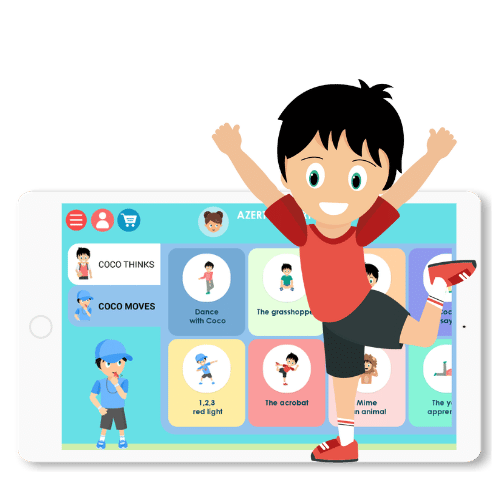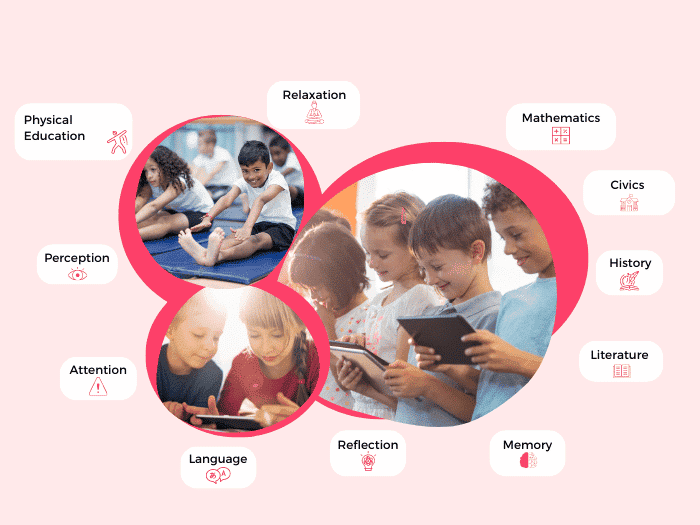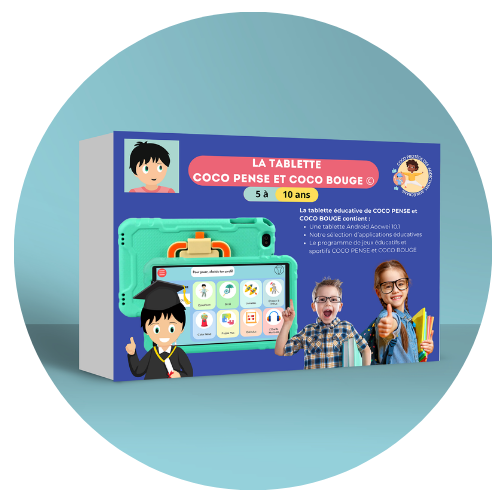How to accompany a child with language and learning disabilities?
Children with language disorders have difficulty expressing themselves or writing. In school, they have more difficulty learning than others. There are several types of disorders: dyslexia, dyscalculia, dysgraphia, etc. There are various ways to support or manage a child with learning disabilities. Here are ten things you can do for your child.
1. Help the child with oral expression
It is necessary to help the child to improve his/her oral expression. With this in mind, you can encourage communication at every opportunity. For example, when bathing or playing with your child.
Also, give the child with language impairments time to answer your questions. Listen carefully when he speaks. Parents may tend to interrupt the child if he or she is slow on the uptake. This is a mistake! Let the toddler go all the way.
2. Speak in a correct manner
Children tend to repeat everything they hear. A child with a learning disability will tend to pick up on mispronunciations. Therefore, every parent must strive to articulate the different words correctly. Don’t hesitate to do repetitions in order to promote a better assimilation. Rephrasing can also be done. The purpose of rephrasing is to increase the vocabulary of the child with language impairment. Use the right gestures during the conversation. That’s why it’s important to talk to him face to face with an audible voice. Talk to your child while staring.
3. Make the child’s environment calm
A calm and quiet environment promotes learning. In this case, create a supportive learning environment for the language-impaired child. He needs good concentration to assimilate better. Designing your space means removing all noisy accessories. When your toddler is at work, please eliminate all sources of noise. So that he learns in the best conditions.
You can help him improve his concentration by offering him interesting activities. Do not hesitate to do some activities with him to motivate him.
4. Adapted games for learning
Today, thanks to new communication technologies, there is a wide range of games for children with learning disabilities or difficulties. You can learn at any age. This means that every parent can find interesting games for their child, regardless of age or gender (girl or boy).
The experts have developed many fun and evolving games. Choose based on the disorder if your child has already been diagnosed with it. There are figurines of characters, card games to learn sounds, etc. Not to mention games for PC or tablet.
5. Help the child improve his or her self-esteem
Learning disabilities or difficulties have a negative impact on your child’s schooling and self-esteem. However, a lack of esteem can be an open door to academic failure. You have an obligation to help your child with this. It is necessary to put at his disposal the appropriate means to build a good self-esteem.
The parent must find concrete tools to remedy this. Allow the child to take initiative on a daily basis. Also, avoid overprotection.
6. Help the child acquire new words
You can increase the number of words by playing a few simple but very interesting games with him. For example, identify the contents of the cabinets together. The aim is to use words to describe each accessory. Images are also welcome for identification purposes. The play tray is a good way to practice this exercise.
Here, the child learns to associate words with the various objects he sees or uses throughout the day. Set up special bins to boost his language.
7. Reading with the child
Reading is essential to the language development of all children. The book stimulates the language of toddlers. Read with the child. He should also be encouraged to read. It is not easy to find a book for your child. However, you know him better. So, select books from the market that the child likes. Bring books with great stories for toddlers. Avoid insisting on a book that she doesn’t like. It is best to respect his opinion without scolding or admonishing him.
Why not let him choose a book? He also knows how to appreciate what is good for him. You will see the benefits of reading over the long term.

8. Take care of your health
Good health certainly contributes to better learning at home and at school. Vaccinations are mandatory for school attendance. You must be careful about recall dates. Children’s health at school also includes medical visits. Students with disabilities, special needs, or serious illnesses are especially affected. Always make sure that your child with a language disorder is doing well.
9. A sport to improve your confidence
Sport is beneficial regardless of the learning disability. It can help restore confidence. The latter is necessary for school learning. Sporting success helps to improve self-confidence or self-esteem. However, it is important to find a sport that will help him or her develop. A boy will be able to play soccer. You enroll him in a gym or a sports club. He can learn sports such as basketball and volleyball. Choose a sport that will not endanger his life or health.
10. Visit the speech therapist
A speech-language pathologist is a licensed professional who is able to support children with language disorders. He proceeds with speech therapy. The speech therapist will be able to meet the parents’ expectations. Rehabilitation will help improve the child’s condition.
Use the COCO THINKS and COCO MOVES educational program at school,
inclusive for all
The COCO THINKS and COCO MOVES application contains more than 30 educational games to work on English, math, logic, memory or attention. In addition, the application imposes a sports break every 15 minutes of screen time to teach measured screen use.
Much smarter than a parental control!


COCO also accompanies children with special needs
Other articles that might interest you:
How Parents Can Contribute to Teacher Training
As we delve into the realm of education, it becomes increasingly clear that teacher training is not merely a...
Differentiated Instruction Approaches: Training and Practical Application
Differentiated instruction is a pedagogical approach that recognizes the diverse needs of students in a classroom. It...
Key Skills Teachers Need to Support Students with Special Needs
As we embark on our journey to support children with special needs, it is essential for us to cultivate a deep...







